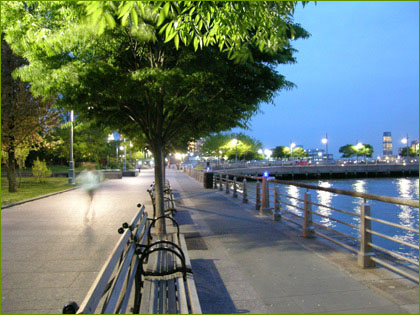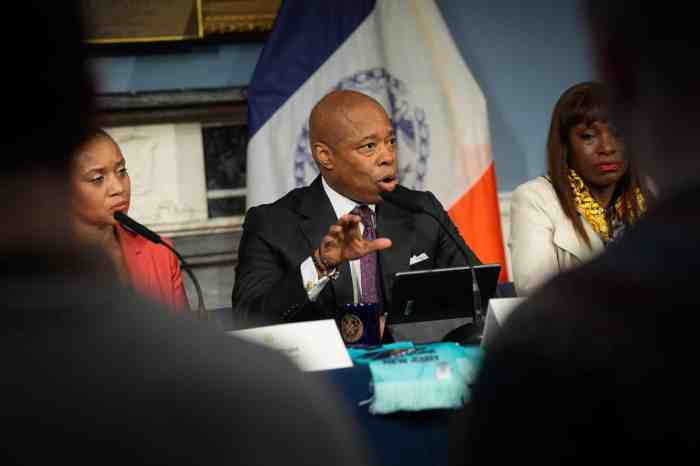As we’ve said for sometime now, we support the efforts of the Hudson River Park Trust and its community task force to try to look “outside the box” and examine all ideas for Pier 40 and the entire 5-mile-long Lower West Side waterfront park.
The park is facing an escalating financial deficit that threatens the Trust’s ability to complete the park’s construction — and even properly to maintain what has already been built.
Modifying the Hudson River Park Act of 1998 may well be necessary: The park is now 70 percent built, so restrictive protections against commercial development that seemed essential 14 years ago perhaps can be modified, now that the fear of an entirely commercialized waterfront is no longer a possibility.
That said, there’s a process for major changes to the park. In short, a “significant action hearing” must be held, with 30 days’ notice given, followed by another 30 days of public comment. This fact has been pointed out by Assemblymember Deborah Glick, who is extremely concerned that legislative changes to the park act not be made without sufficient community input.
We agree with Glick. The Trust, for its part, is countering that changing the park’s legislation — such as to allow longer leases and bonding authority, or to allow residential or hotel use on Pier 40 — doesn’t rise to the level of requiring such a hearing. According to the Trust, a full-bore public hearing would only be required if, first, the legislation was changed and, then, if the Trust decided to actually act on one of the new provisions — such as, say, moving to issue a request for proposals (R.F.P.) to developers for housing on Pier 40.
The Trust is very much interested in changing the park act to open Hudson River Park up to a potentially wider variety of uses that could help generate income for this beloved park, which is required to be financially self-sustaining. Essentially, it’s a good idea — and one that may ultimately save the park from failing.
But laws exist precisely to protect the things we do want — the park, the waterfront views, the ball fields, our sense of peaceful enjoyment. And laws also exist to protect against things we don’t want — uses that would impact the park too heavily or change its fundamental character.
When the park act was being debated in ’98, some waterfront activists raised a cry that the Trust would be an “unaccountable authority.” The Trust has a very compelling case to make on the changes that are necessary to create a viable and sustainable park, but it needs to let the public have its say.
In our view, the best thing that the Trust could do right now would be to hold a large-scale public hearing on Pier 40 and Hudson River Park. Discussing these matters at meetings of the Trust’s community task force, the Hudson River Park Advisory Council and Community Board 2’s Waterfront Committee is important to build understanding and momentum, but not the same thing as a public hearing.
The Trust is showing bold thinking on the waterfront, and we applaud it. The status quo is not an option. However, the legislative changes being contemplated constitute “a significant action,” in our view, due to their potential impact. A hearing should be held.


















